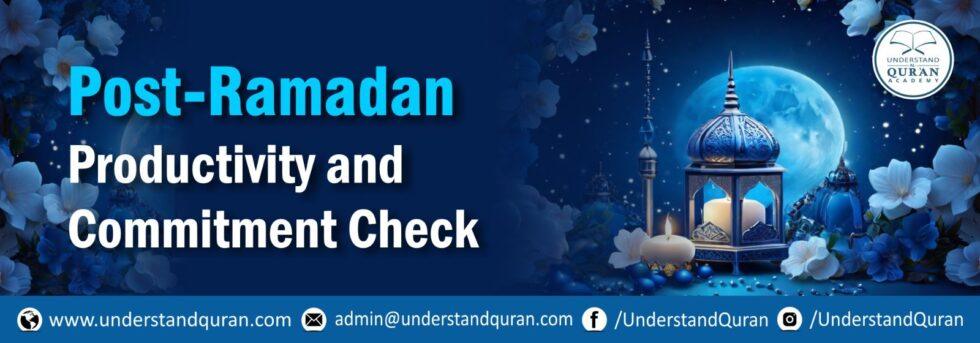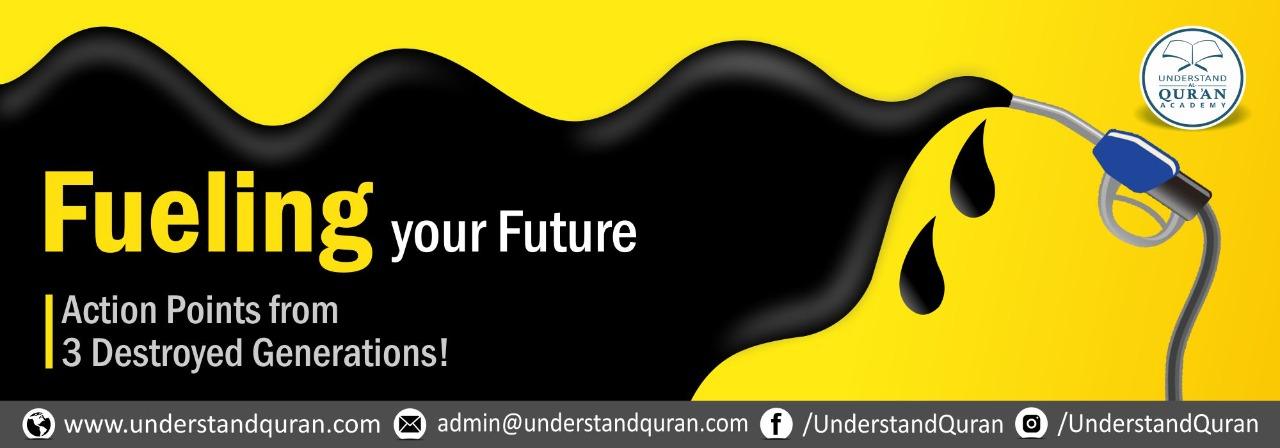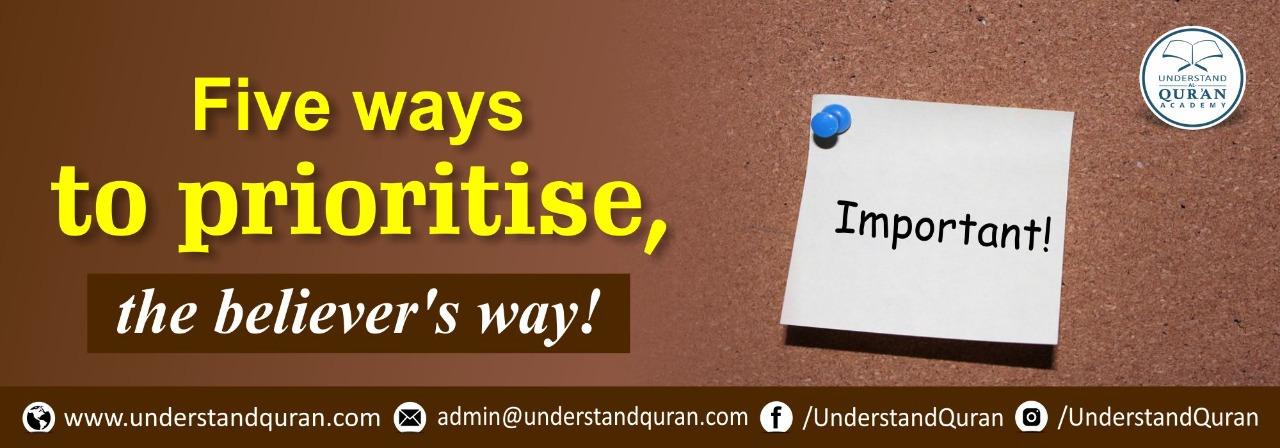Post-Ramadan Productivity and Commitment Check

Bismillahir Rahmanir Rahim
Another beautiful Ramadan has passed us by. You, who have witnessed this month, are among those people chosen by Allah the Exalted to be blessed with this wonderful gift. How much have we benefited from this gift? How much did we fail to do? Have we attained the goals of Ramadan– taqwa, gratitude, and guidance?
Of course, we can never gauge our level of spirituality. That is completely out of our hands, it’s for Allah to know about that. But we can at least give ourselves a self-check as to how much we have progressed, and what we can do better in the future in sha Allah, may Allah give us the blessing of witnessing many Ramadans to come.
How Much Went According to Plan?
We make so many plans before Ramadan— we’ll do this, we’ll do that, we’ll recite Quran everyday, we’ll attend tarawih every day in masjid. If you have your goals for Ramadan written down, that’s great. All you have to do is take your goals, and put a percentage beside each one as to how much you succeeded in doing it.
For example, if you attended tarawih 15 days out of 29 in masjid, then write 50% beside it. If you don’t have your goals written, then list them down roughly in a piece of paper and do a similar percentage counting. This will give you a clear picture of how much you succeeded. Thank Allah for however much success He has given you, and ask Allah’s forgiveness for the time which you wasted.
If you do this, you’ll never have to say things like, ‘I have wasted my Ramadan,’ or ‘I am such a failure,’ because no matter how much you try, you can’t ever have a 100% unproductive Ramadan, because you will always have done some things. And you can’t have a 100% productive Ramadan either, because you’ll always have skipped some hours doing worldly things. So don’t put a level on yourself saying ‘I am a Ramadan-waster,’ because you’re not.
There is a famous hadith about Ramadan where Jibreel a.s. said, ‘Woe unto those who did not obtain Allah’s forgiveness when the month of Ramadan came around,’ and the Prophet s.a.w. said ‘Ameen’. You might be scared that you’re among this group of people who’re not forgiven. In fact it’s a good thing to fear the consequences of your actions. But at the same time you have to have hope in the mercy of Allah. Be hopeful that Allah has indeed forgiven your sins for your worship and your fasting. Allah said in a hadith Qudsi, ‘‘I am as My servant thinks (expects) I am.’ [Sahih Bukhari]
What Can You Improve in the Coming Ramadan?
The ideal Muslim has an optimistic personality. Don’t lament on your failures, rather learn from them and convert them into blessings by using them to improve yourself and become a better Muslim. Make a list of the things which you would like to keep in mind for the following Ramadan. For example, (for women) you may have had an amazing Ramadan, till the moment you had your period, and then everything got messed up. You may want to note down this fact and take extra precaution to guard your worship during menses.
Don’t assume that you’ll remember to make these improvements without having to write them down. There is a high chance that you’ll forget all about them and make the same mistakes again in the following Ramadan. Therefore, write them down and keep them in a safe place where you can find them next year in sha Allah.
What is that one gift which Allah has given me this Ramadan?
Have you learned something special this Ramadan? Have you realized how easy it is to pray qiyamul layl, that dreaded night prayer? Have you finally realized how easy Quran flows from your tongue in a melodious rhythm? Find out one thing which was special this Ramadan, and once you have that pearl, learn to cherish it, feel happy and grateful about it, and make the most of it in the way of Allah.
Learn Arabic at UQ Academy. It’s easy and fast and you can learn on the go on your smart phones and tablets using UQA special Apps. Start with Learning 50% of Quranic Words with grammar in 9 hours!
Hundreds of thousands of Muslims have benefitted from our short courses in Arabic and unique methodology. So, can you!
Apply here for a FREE TRIAL now.
~Tabassum Mosleh










